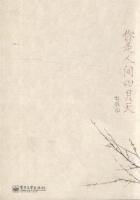Suddenly Don Cayetano Polentinos, Dona Perfecta's brother-in-law, appeared at the door, and entering the room with outstretched arms, cried:
"Let me embrace you, my dear Don Jose."
They embraced each other cordially. Don Cayetano and Pepe were already acquainted with each other, for the eminent scholar and bibliophile was in the habit of making a trip to Madrid whenever an executor's sale of the stock of some dealer in old books was advertised. Don Cayetano was tall and thin, of middle age, although constant study or ill-health had given him a worn appearance; he expressed himself with a refined correctness which became him admirably, and he was affectionate and amiable in his manners, at times to excess. With respect to his vast learning, what can be said but that he was a real prodigy? In Madrid his name was always mentioned with respect, and if Don Cayetano had lived in the capital, he could not have escaped becoming a member, in spite of his modesty, of every academy in it, past, present, and to come. But he was fond of quiet and retirement, and the place which vanity occupies in the souls of others, a pure passion for books, a love of solitary and secluded study, without any other aim or incentive than the books and the study themselves, occupied in his.
He had formed in Orbajosa one of the finest libraries that is to be found in all Spain, and among his books he passed long hours of the day and of the night, compiling, classifying, taking notes, and selecting various sorts of precious information, or composing, perhaps, some hitherto unheard-of and undreamed-of work, worthy of so great a mind.
His habits were patriarchal; he ate little, drank less, and his only dissipations consisted of a luncheon in the Alamillos on very great occasions, and daily walks to a place called Mundogrande, where were often disinterred from the accumulated dust of twenty centuries, medals, bits of architecture, and occasionally an amphora or cubicularia of inestimable value.
Don Cayetano and Dona Perfecta lived in such perfect harmony that the peace of Paradise was not to be compared to it. They never disagreed.
It is true that Don Cayetano never interfered in the affairs of the house nor Dona Perfecta in those of the library, except to have it swept and dusted every Saturday, regarding with religious respect the books and papers that were in use on the table or anywhere else in the room.
After the questions and answers proper to the occasion had been interchanged Don Cayetano said:
"I have already looked at the books. I am very sorry that you did not bring me the edition of 1527. I shall have to make a journey to Madrid myself. Are you going to remain with us long? The longer the better, my dear Pepe. How glad I am to have you here! Between us both we will arrange a part of my library and make an index of the writers on the Art of Horsemanship. It is not always one has at hand a man of your talents. You shall see my library. You can take your fill of reading there--as often as you like. You will see marvels, real marvels, inestimable treasures, rare works that no one but myself has a copy of.
But I think it must be time for dinner, is it not, Jose? Is it not, Perfecta? Is it not, Rosarito? Is it not, Senor Don Inocencio? To-day you are doubly a Penitentiary--I mean because you will accompany us in doing penance."
The canon bowed and smiled, manifesting his pleased acquiescence. The dinner was substantial, and in all the dishes there was noticeable the excessive abundance of country banquets, realized at the expense of variety. There was enough to surfeit twice as many persons as sat down to table. The conversation turned on various subjects.
"You must visit our cathedral as soon as possible," said the canon.
"There are few cathedrals like ours, Senor Don Jose! But of course you, who have seen so many wonders in foreign countries, will find nothing remarkable in our old church. We poor provincials of Orbajosa, however, think it divine. Master Lopez of Berganza, one of the prebendaries of the cathedral, called it in the sixteenth century /pulchra augustissima/. But perhaps for a man of your learning it would possess no merit, and some market constructed of iron would seem more beautiful."
The ironical remarks of the wily canon annoyed Pepe Rey more and more every moment, but, determined to control himself and to conceal his anger, he answered only with vague words. Dona Perfecta then took up the theme and said playfully:
"Take care, Pepito; I warn you that if you speak ill of our holy church we shall cease to be friends. You know a great deal, you are a man eminent for your knowledge on every subject, but if you are going to discover that that grand edifice is not the eighth wonder of the world you will do well to keep your knowledge to yourself and leave us in our ignorance."
"Far from thinking that the building is not handsome," responded Pepe, "the little I have seen of its exterior has seemed to me of imposing beauty. So there is no need for you to be alarmed, aunt. And I am very far from being a savant."
"Softly; softly," said the canon, extending his hand and giving his mouth a truce from eating in order to talk. "Stop there--don't come now pretending modesty, Senor Don Jose; we are too well aware of your great merit, of the high reputation you enjoy and the important part you play wherever you are, for that. Men like you are not to be met with every day. But now that I have extolled your merits in this way----"
He stopped to eat a mouthful, and when his tongue was once more at liberty he continued thus:















